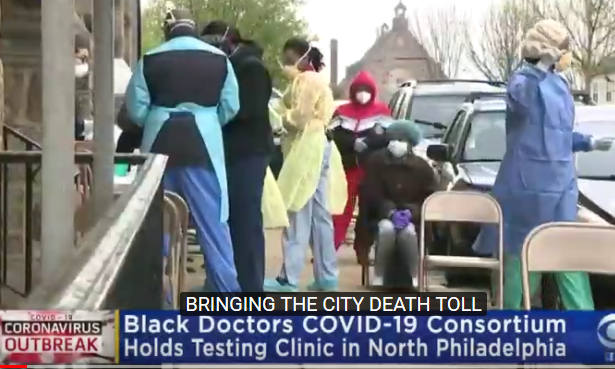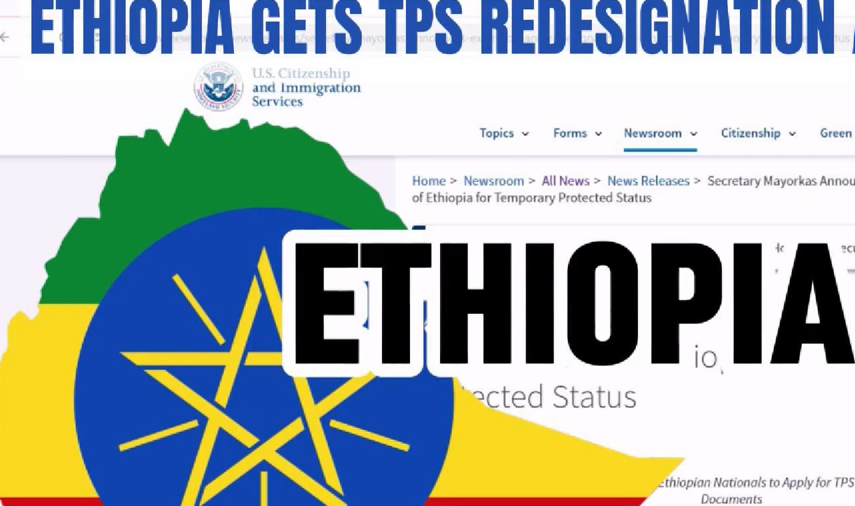[“Speaking Truth to Empower”]
Benjamin: “The issue of healthcare, which is a central one for all Americans, is even more critical for African-Americans.”
Photo: Youtube
If Black America had more community-based hospitals, clinics, doctors and nurses wouldn’t we have been better able to survive COVID-19?
COVID-19 is ravaging Black America. American racism is the primary reason.
African-Americans are now experiencing more daily deadly stress than regular. Death by COVID-19 can now be added to the long list of things killing us in this uncaring profits-before-people society.
“American exceptionalism” has never accepted Black humanity, though most things that are exceptional in America have some connection to Black sacrifice.
This reality we find ourselves in further reveals our current political helplessness. We are now pleading defenseless for help from the same white America that has always exploited us. We are dying in impoverished neighborhoods, on cold streets where our homelessness is extreme, and in their jails and prisons filled with Black skin bodies.
Black America must learn this vital lesson from COVID-19: America’s institutionalized system of racism will never deliver real justice to us or save us. That fight is our essential task.
The ineffectiveness of Black leaders is fully on display. Many are decrying the Trump White House’s obvious mismanagement in response to COVID-19. In this time of national peril, the thoughtless leadership coming from the White House and Congress is evident.
Black political leaders are busy begging Republicans to provide aid to help Black people. We’re in an awful position expecting help from those who have always used us as political piñatas. The COVID-19 pandemic is happening at a time when Trumpian Republicans control Washington. If we keep waiting on these folks to do the right thing, we will be in worse trouble than the numbers are suggesting.
This crisis is a wakeup call for Black America. African-Americans account for one-third of COVID-19 deaths—even though we are only 13 percent of the population.
Consider these sobering statistics that the Associated Press published weeks ago.
In New York City, 1,771 of the first 6,040 recorded deaths were Black people. In Michigan, 858 of the first 1,821 recorded deaths were Black. In New Jersey, 560 of the first 2,491 recorded deaths were Black. In Louisiana, 524 of the first 805 recorded deaths were Black. In Illinois, 441 of the first 1,011 recorded deaths were Black. In Georgia, 319 of the first 583 recorded deaths were Black.
This redundancy of the disparate deaths of Black people is being seen everywhere. And this should be emphasized: these statistics represent only the beginning tip of the iceberg, since doctors and others complain about incomplete demographic data collection. Moreover, in places like New York City, dead Black people are being found later after succumbing to the virus inside their homes.
Some, especially in the corporate media, have asked why so many Black people are dying. Somehow, these press pundits profess ignorance in understanding how COVID-19 and American racism is combining to deliver death sentences to Black people. They pretend not to know that American racism has always been joined to the hip with classism.
But Black America cannot waste too much time just lambasting these pretensive phonies. We have to learn the lessons from COVID-19 and start saving ourselves.
This emergency makes it clear that it is past time for us to start investing smartly in our own communities. We have few viable institutions, and little infrastructure of industry or commerce. This must change.
The pandemic is illustrating our economic and political powerlessness. That powerlessness is now playing itself out in real-time, as bodies of Black people pile up.
COVID-19 is also showing the connection between wealth inequality and American racism. The descendants of kidnapped Africans are more vulnerable to this pandemic because of hundreds of years of institutionalized exploitation.
The issue of healthcare, which is a central one for all Americans, is even more critical for African-Americans. Black people in America are more vulnerable to a host of healthcare issues including: Asthma, Cancer, Depression, Diabetes, Heart Disease, Hepatitis C, High Blood Pressure, Obesity, Sickle Cell Anemia, and Stroke.
The COVID-19 pandemic has illustrated this: Black America is in serious need of an influx of local neighborhood-based healthcare professionals and institutions. An African-American infrastructure of local doctors, nurses, clinics, hospitals should now become a central goal of Black America moving forward. To accomplish this, African-Americans from all stripes must become involved in a massive effort to marshal support for the building of Black-owned medical learning institutions to produce more doctors, nurses, etc. More must be done to encourage young people into seeing the value of pursuing careers in healthcare.
Imagine if Black American communities had more doctors, nurses, clinics, and hospitals—run by trained Black healthcare professionals—wouldn’t we have been better able to bear the brunt from this life-taking catastrophe?
Consider the following: because of racial segregation, in 1944 there were around 124 Black hospitals—but by the 1990’s there were only around eight. The belief that integration would provide better outcomes for African-Americans was one reason for the abandonment of these Black hospitals. After COVID-19 has ended, the work of reintroducing local Black healthcare facilities must become a top priority.
African-American leaders need to commit themselves to tackling the serious healthcare challenges our people have always faced, which has now been fully revealed by COVID-19.
Many have noted that even wealthy African-Americans often receive substandard healthcare. If this isn’t institutional racism at work in the healthcare industry, then how is it to be explained? We must face this hard fact: American racism permeates every aspect of American life—including healthcare. Therefore, it isn’t surprising why some Black people don’t trust going to doctors and hospitals.
Many of us will admit racism is rampant in the criminal justice. We hear stories again and again about innocent Black people spending decades in prison because of the lies and corruption of police and prosecutors. We witness the unpunished acts of killer-cops.
However, too many of us don’t want to consider that racism is likely leading to deadly encounters when some of our people go to a hospital or doctor. We are told doctors follow the Hippocratic Oath “First, do no harm.” But in any healthcare system where care is based on you bank account, and skin color—it should be quite obvious that abiding by this oath becomes compromised. Healthcare has been segregated like everything else in this country.
Now, there is no question there are many healthcare professionals that are doing an exemplary job during COVID-19. But the American healthcare system is not a friendly one for poor people—and an even worse one for African-Americans.
In the CARES Act, Republicans were able to include a provision that will deliver massive tax-breaks to the wealthy. According to the Joint Committee on Taxation, this provision will cost the nation $ $135 billion in lost tax revenue over the next 10 years—while only $42 billion is spent on safety-net programs. These same immoral Republicans also fought tooth-and-nail against giving extra sick days to regular Americans while people were dying of COVID-19.
The world will be a different one when this pandemic is over. The world is already different. The question now is will Black America finally get its act together and start looking at other Black people for the answers to our problems?
The main lesson we must learn from this COVID-19 crisis is that Black people must fully empower ourselves to save ourselves.












